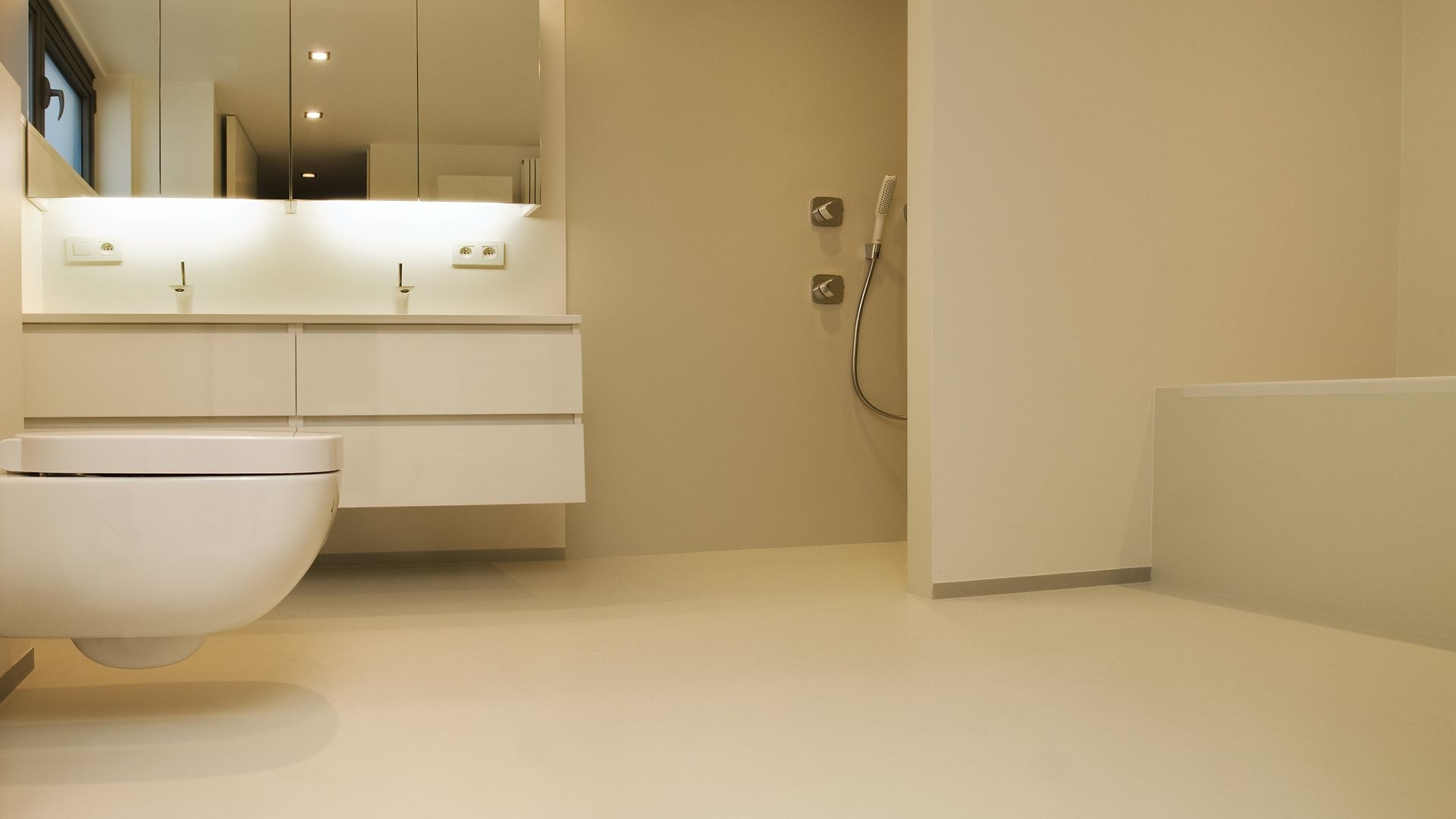Proper waterproofing is crucial for protecting the property from water damage. Water intrusion can lead to structural issues, costly repairs, and even health hazards like mold and mildew growth. Wet area like bathroom, toilet and kitchen, semi-exposed area like balcony and air-cond ledge, need effective waterproofing solutions.
Wet Area That Need Waterproofing
Indoor Wet Area
- Toilet
- Shower area / Bathroom
- Changing room
- Ablution
- Kitchen
- Pantry
Semi Exposed Wet Area
- Balcony
- Verandah
- Yard
- Air-conditioner ledge
The above are just some examples, and wet areas can vary depending on the design and the purpose of the building or area. It is important to identify all the potential wet areas in a building and implement appropriate waterproofing solutions to prevent water damage and avoid costly repairs in the future.
Recommended Sika Wet Room System
It all starts with choosing the right products, and the correct construction and installation system. Sika provides a guaranteed system approach and supplies quality solutions from waterproofing membranes and tapes, tile adhesive and tile grout mortars to joint sealants for the final touch and a long-lasting finish.
Click below to expand:
Plastering
Edge treatment
Cementitious waterproofing mortar
For wall upturn up to 300 mm:
For wall upturn above 300 mm:
Backing screed
Tile adhesive
For ceramic tiles:
For homogeneous / porcelain tiles smaller or equal to 300 mm × 600 mm:
For homogeneous / porcelain tiles smaller or equal to 600 mm × 600 mm:
For homogeneous / porcelain tiles larger than 600 mm × 600 mm:
Tile grout
Davcogrout
Floor and wall tile joint filler
with
Davco Grout Admix Plus RL 1000
High bonding strength latex additive for grouting tile joints
or
SikaCeram®-618 Coloured Grout
Floor and wall tile joint filler
with
SikaLatex®-118
Water-resistant polymer bonding agent and mortar-strengthening additive
Sealant
Plastering
Edge treatment
Cementitious waterproofing mortar
For wall upturn up to 300 mm:
For wall upturn above 300 mm:
Backing screed
Tile adhesive
Bonding agent
If without plastering prior to tiling installation
Tile grout
Davcogrout
Floor and wall tile joint filler
with
Davco Grout Admix Plus RL 1000
High bonding strength latex additive for grouting tile joints
or
SikaCeram®-618 Coloured Grout
Floor and wall tile joint filler
with
SikaLatex®-118
Water-resistant polymer bonding agent and mortar-strengthening additive
Sealant
Edge treatment
Cementitious waterproofing mortar
Backing screed
Tile adhesive
Tile grout
Davcogrout
Floor and wall tile joint filler
with
Davco Grout Admix Plus RL 1000
High bonding strength latex additive for grouting tile joints
or
SikaCeram®-618 Coloured Grout
Floor and wall tile joint filler
with
SikaLatex®-118
Water-resistant polymer bonding agent and mortar-strengthening additive
Sealant
Edge treatment
Cementitious waterproofing mortar
Backing screed
Tile adhesive
Tile grout
Davcogrout
Floor and wall tile joint filler
with
Davco Grout Admix Plus RL 1000
High bonding strength latex additive for grouting tile joints
or
SikaCeram®-618 Coloured Grout
Floor and wall tile joint filler
with
SikaLatex®-118
Water-resistant polymer bonding agent and mortar-strengthening additive
Sealant
Plastering
Edge treatment
Cementitious waterproofing mortar
Backing screed
Tile adhesive
Tile grout
Davcogrout
Floor and wall tile joint filler
with
Davco Grout Admix Plus RL 1000
High bonding strength latex additive for grouting tile joints
or
SikaCeram®-618 Coloured Grout
Floor and wall tile joint filler
with
SikaLatex®-118
Water-resistant polymer bonding agent and mortar-strengthening additive
Sealant
Edge treatment
Cementitious waterproofing mortar
Backing screed
Tile adhesive
Tile grout
Davcogrout
Floor and wall tile joint filler
with
Davco Grout Admix Plus RL 1000
High bonding strength latex additive for grouting tile joints
or
SikaCeram®-618 Coloured Grout
Floor and wall tile joint filler
with
SikaLatex®-118
Water-resistant polymer bonding agent and mortar-strengthening additive
Sealant
Watch video of how to build a Sika wet room system:
FAQ
Cementitious waterproofing mortar is a ready-mixed waterproofing compound used to protect structures against water infiltration. They are supplied as ready-to-use solutions either in one single component or two-component packs to seal against damp soil, seepage and percolating water. In addition, cementitious waterproofing mortar can also be used for the protection of concrete structures. Waterproofing mortars are often applied in water reservoirs, water retaining structures, basements, and other engineering structures as well as beneath tiling for swimming pools, balconies, bathrooms, and kitchens.
In general, any cementitious based mortar and liquid applied bituminous coating are suitable be used for these areas.
Sika recommends a consumption rate of 1.0 kg per m² per coat and a minimum of two coats are required for bathroom, toilets, and kitchen.
Typical bond strength of cementitious waterproofing mortar ranges from 0.5–1.0 N/mm², depending on the type and grade of the products.
An angle fillet is incorporated at the base angle to round off the 90° right angle at the wall to floor joint to form a 45° angle. A typical angle fillet is formed using cementitious based material. Thus, it is hard and non-deformable. An edge tape is a thermoplastic elastomer (TPE) that is elastic in nature. The edge tape is an elastic system component that is used in combination with Sika waterproofing mortar to form a high elastic and crack bridging sealing tape around the edge and corners. Cement sand with latex (or SikaGrout®) angle-fillet is sufficient when a concrete kicker is provided. An edge tape is recommended for drywall or precast systems and also when a concrete kicker is not provided.

